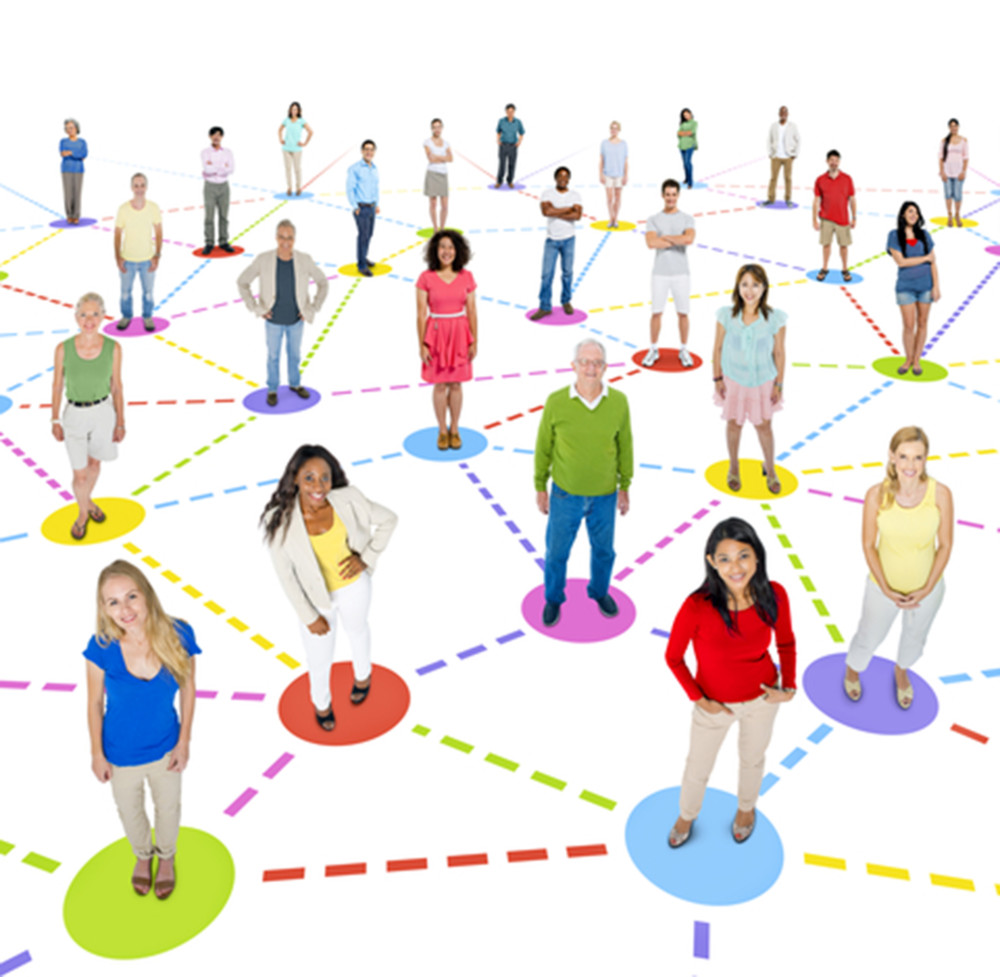By Heidi Stevens
Chicago Tribune
WWR Article Summary (tl;dr) As columnist Heidi Stevens reports, we’re wired to connect. Over something, anything. Community is our instinct.
Chicago Tribune
We had active shooter training at work recently.
That’s where safety experts teach you how to try to survive an armed attack inside your building, similar to the instructions children learn, routinely, at school now.
It was surreal and, I suppose, necessary and, obviously, demoralizing. Mostly I felt sad, knowing how completely we’ve woven the expectation of gun violence into our daily lives.
There was a moment, though, that left me hopeful.
We were instructed to run as our first resort, hide as our second resort and fight back as our last resort. First and foremost: Leave your stuff, leave your co-workers and hightail it to a safer spot.
One of my co-workers raised her hand and asked about our colleagues who might need some extra help or time, colleagues who use canes or other assistive devices. Surely we shouldn’t just abandon them?
The safety expert said this, and I’ll paraphrase because I didn’t write down his quote: Humans are social creatures. We are wired and trained to live in packs, to move in packs, to surround ourselves with other people. We aren’t made to be lone wolves. We need others.
He said he was trained in the military to hoist people on his shoulders and run and, therefore, would probably, personally, stop and help his colleagues. But he said that’s a personal decision that each individual has to make, based on his or her strength and comfort.
He understood the instinct to help. Because it is an instinct. Hanging tight to our humanity is our instinct.
Community is our instinct.
Believe it or not, that brings me to my hunt for a new dishwasher.
(Stick with me for a minute.)
Mine broke Tuesday. It was old and hadn’t actually cleaned a dish in, oh, four years. We were ready to part ways.
I posted a plea on Facebook: Point me toward a good dishwasher. Who likes theirs, who hates theirs and, by the way, does microwaving a sponge actually sanitize it?
I had 40 replies before I knew it. Then 80. Then 100. Then 150. I was up to 179 Friday morning. About dishwashers.
I learned how many decibels I should look for if I want it to run a quiet cycle. I learned that a stainless steel interior traps fewer odors.
I learned about a delightful, 72-year-old, family-owned shop called Cole’s Appliance and Furniture Co. in Lakeview. I learned that a friend’s daughter did her school science project on sponges and determined that the only way to sanitize them is to boil them after every use (!)
I heard from a high school friend’s older brother and my daughter’s friends’ parents and some work colleagues and some dear friends and some people I’ve never met.
“I can’t believe this dishwasher post has 157 … err … 158 replies!!” my friend Sharon wrote Thursday. “We are clearly thrilled to not be discussing politics!”
Clearly. Because we’re wired to connect. Over something, anything. Community is our instinct.
I suppose, more than anything, that’s what Mark Zuckerberg and his Harvard roommates tapped into when they invented Facebook. I don’t know if they foresaw multi-layered, days-long conversations about dishwashers, but they certainly sensed how deeply we long to stay connected.
We can debate whether, on balance, Facebook has done more to connect or divide us. But certainly the site’s popularity indicates it tapped into something primal, our need for community.
Politicians divide us. Pundits and fearmongers divide us. Laura Ingraham, when she says “the America that we know and love doesn’t exist anymore,” divides us.
We’re strongest when we resist them. We’re strongest when we honor our instinct to connect with one another and, even more important, take care of one another.
We’re strongest when we stop looking for ways to divide people into hierarchies that pretend how we look or whom we love or how we worship or where we’re born should determine how much care and protection and freedom and grace we deserve.
Humanity is our instinct.
That’s what my co-worker’s question was about: Are we really expected to abandon one another?
That’s what the safety expert’s answer was about: We’re wired to survive, but we’re wired to survive together.
That’s what, in a far lower stakes way, my dishwasher comment string was about: Let me help.
I see people doing that in big and small ways every day: pushing back against hate rallies, hosting interfaith events, launching community dialogues, engaging in painful conversations about privilege and inequality and how to effect change.
That’s what leaves me hopeful. Not the absence of conflicts and threats; we’re up to our ears in both. But the knowledge that, on a primal level, our instinct is to survive them together.














































































































































































































































































































































































